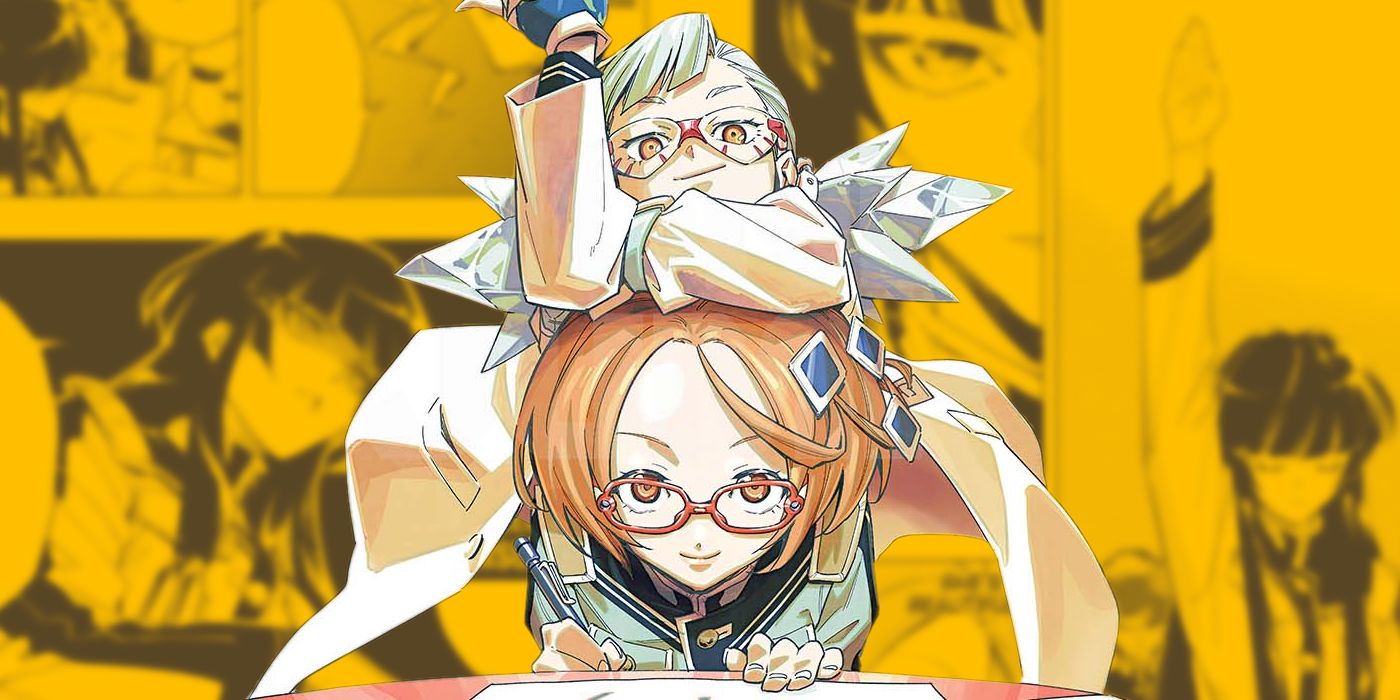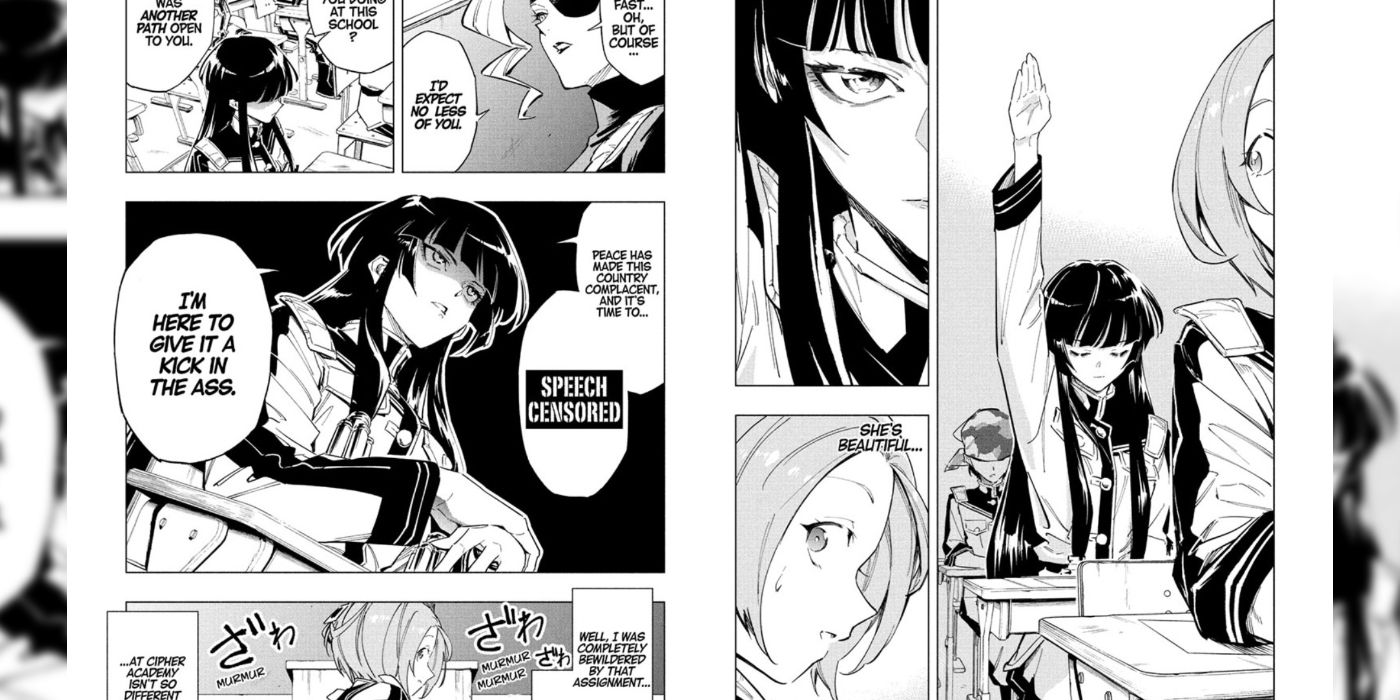The manga magazine Shonen Jump just introduced a new series, Cipher Academy, that's setting itself apart via some absolutely insane puzzles, but even more so due to its creative application of censorship to drive home points about Japanese society.
Cipher Academy is based on the idea of codebreakers and code designers of the World War 2 era, people (often women) who worked to break enemy encryptions or develop encryption methods for their own soldiers to use. Cipher Academy updates the concept a bit, however, by bringing it into the modern world of cryptography, mentioning things like cryptocurrency and computer-based encryption. As the title suggests, the series is set in a Japanese school for students of cryptography and codebreaking. Protagonist Iroha Irohazaka, however, really doesn't know much about cryptography, and just signed up for this school for the unisex uniforms.
In several spots throughout the extra-long first chapter, dialog and text is seemingly censored. The first instance of this occurs on page 6, with the phrase "Ideology Censored" appearing while the teacher is talking about World War 2 era Japan. It happens again on page 9, where a stern-looking female student (named Toshusai) is in the midst of a jingoistic speech, which suddenly shifts to "Speech Censored." Again on page 18, when a young girl being chased by Toshusai says something that has been replaced with "Account Retracted." Several more occur in the final pages, including "Account Frozen" from Iroha, and "Speech Censored" several times from Toshusai and her minions.
Cipher Academy Picks at Japan's Discomfort With the Past
Something that's important to understanding this chapter properly is that in Japan, the discussion of WW2 and particularly the country's actions during the war can be highly controversial. The Imperial Japanese army was accused of many atrocities in mainland Asia throughout the war, and the modern Japanese government hasn't handled this well. The "Ideology censored" message appears when Iroha is thinking critically about the teacher's militaristic perspective. The fact that it's censored keeps any specific details from being mentioned that someone might take issue with, while still getting the idea across that Iroha isn't a fan of this point of view. It also isn't clear exactly who's being censored--the teacher or Iroha. Toshusai's censorship is similar, as, in the small part that's uncensored, she rants about Japan's "complacency," and it's later revealed that her family runs a weapons manufacturing company.
The censorship isn't actually being ordered from editors or bureaucrats, however. These lines are censored by the author to make a point. Despite the manga being about encryption, a subject that is considered to be a weapon by some treaties, the author is clearly not in favor of the nationalistic perspective of many of these characters. By self-censoring, there's no need to write out pseudo-patriotic rants that go against their own beliefs; the idea gets across without need for details. But there's another level to this, too--the controversy surrounding the topic of Japan's military past and its current capabilities is considered impolite to speak about by many. By alluding to it without saying anything specific, Shonen Jump's new manga, Cipher Academy, itself is satirizing the unwillingness that people have to talk about it at all, forcing people's own thoughts on the issue to come to mind as they read.
New chapters of Cipher Academy will release on Sundays, via Viz's Shonen Jump app.


